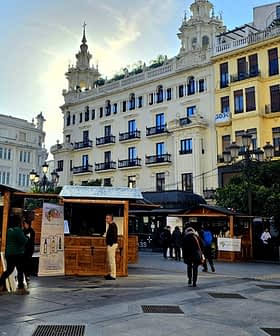By Daniel Williams
Olive Oil Times Contributor | Reporting from Barcelona
The AEMO (Spanish Association of Olive Municipalities) has published a study concluding that traditional methods of olive oil cultivation are no longer profitable in the face of rising costs and falling prices. The report, titled “An Approximation of the Costs of Olive Cultivation”, offers data from a number of industry experts concerning the rising costs of olive oil production. It’s claim regarding non-profitability comes at the end of an olive oil seminar that took place in Carcabuey and Sevilla, Spain.
The study arrives at the same conclusion that many troubled olive oil producers have been advertising as of late, namely that the cost of cultivating olives and deriving a kilo of olive oil from those olives is very high when compared with the low farm gate prices from the last two seasons and when that oil is derived from traditional agricultural methods.
With respect to the many troubles facing production, the harvesting of the olives is the most expensive factor and accounts for roughly 40% of the cultivator’s costs. This is followed by costs of irrigation (25%) and then fertilization (6%). Taking into account these costs and the falling prices of olive oil as of late, the study concludes that traditional olive groves, whether they be mechanized or not, are ultimately unprofitable. According to the AEMO, olive oil producers face a series of costs that are higher than the actual prices of the market.
Facing this bleak situation, the AEMO report offered two possible solutions: to either raise the price of olive oil by means of marketing and other promotional activities or to reduce costs by taking advantage of modern agricultural mechanization, implementing a change in the system of production entirely. Additionally, to the owners of specialized olive groves, AEMO recommended raising the added value of specialized oil by actively promoting the various characteristics that differentiate it from other standard olive oils.
.
.
Asociación Española de Municipios del Olivo (AEMO)
Report: Aproximacion a los Costes del Cultivo del Olivo (PDF)








